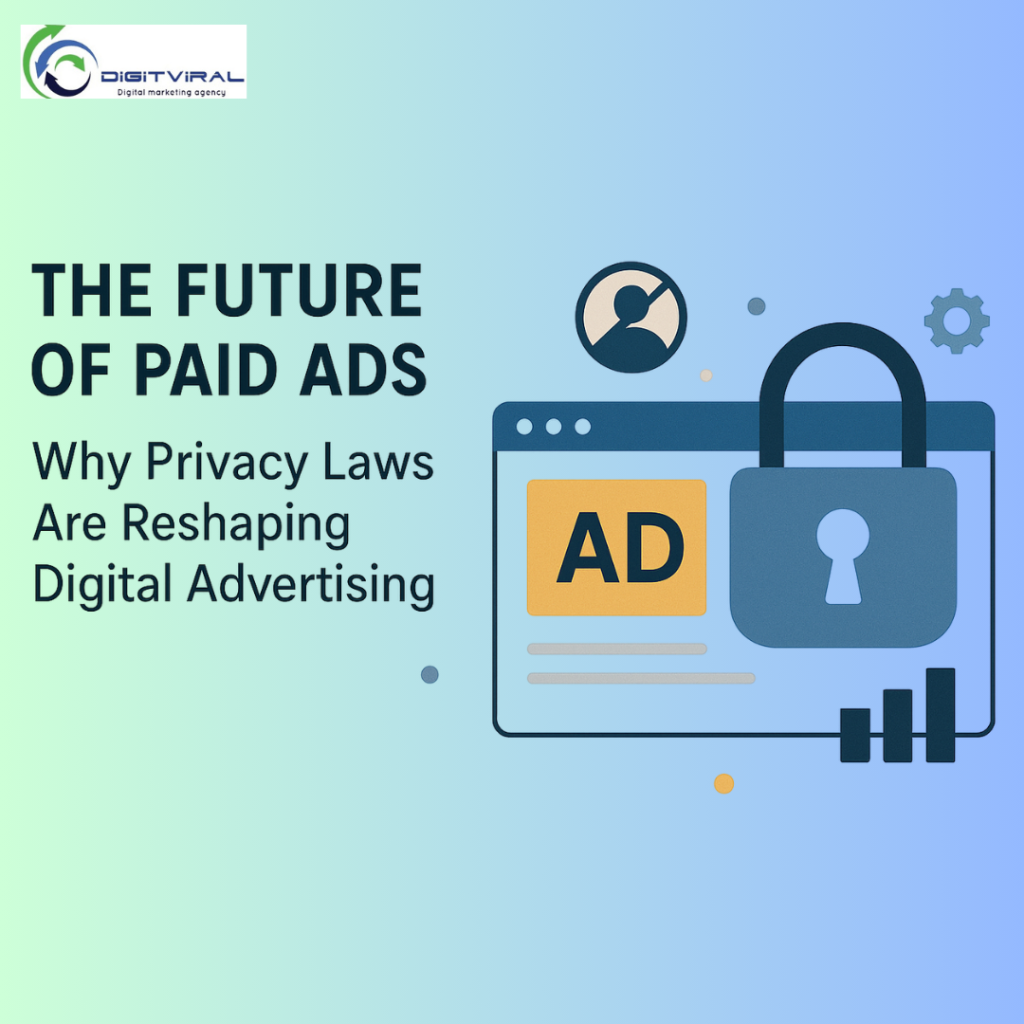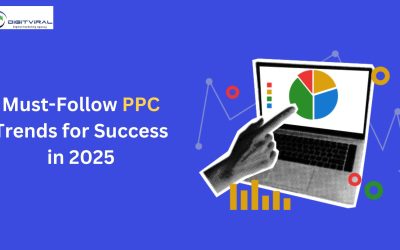The Future of Paid Ads: Why Privacy Laws Are Reshaping Digital Advertising
The digital advertising world is undergoing a massive transformation — not because of a new ad platform, but because of something far more fundamental: privacy laws.
From GDPR in Europe to CCPA in California and now global momentum toward stricter data regulations, the way advertisers collect, track, and target audiences is evolving at lightning speed.
According to a 2024 Statista report, 76% of internet users are now more concerned about their online privacy than ever before.
And 65% of marketers say that changing privacy regulations have already impacted their ad strategies (HubSpot, 2024).
But what does this mean for the future of paid ads?
And how can businesses adapt while still growing and connecting authentically with their audiences?
Let’s explore.
The Rise of Privacy Laws: A Quick Snapshot
Privacy regulations have surged globally over the past few years:
- GDPR (General Data Protection Regulation) — enforced in 2018 across Europe — was the catalyst.
- CCPA/CPRA (California Consumer Privacy Act / California Privacy Rights Act) brought similar rights to U.S. consumers.
- Brazil’s LGPD, Canada’s CPPA, and India’s Digital Personal Data Protection Act followed suit.
- As of 2025, over 71 countries have either passed or proposed major privacy laws. (UNCTAD Report, 2025)
Each of these regulations shares a common goal:
Give users more control over their personal data — and hold companies accountable for how they use it.
How Privacy Laws Are Reshaping Paid Advertising
1. The Decline of Third-Party Cookies
Google announced it will phase out third-party cookies in Chrome by late 2025, following similar moves by Safari and Firefox.
👉 Stat: 83% of advertisers (IAB 2025) say they rely heavily on third-party cookies for audience targeting.
Without cookies, personalized retargeting becomes much harder. Marketers must shift from individual tracking to cohort-based or contextual advertising models.
2. New Consent Requirements
Under laws like GDPR and CCPA, advertisers must now explicitly obtain consent to track and use personal data.
👉 Stat: A recent KPMG study found 78% of users are more likely to engage with brands that are transparent about data use.
Human touch tip: Instead of hiding consent banners, brands should embrace transparent, user-friendly messaging about how and why data is collected.
3. Restricted Data Access from Platforms
Platforms like Facebook (Meta) and Google are limiting advertisers’ access to granular user data:
- Facebook’s Aggregated Event Measurement restricts event tracking.
- Google’s Enhanced Conversions only uses first-party data shared directly by the user.
Advertisers must now invest in their own data (first-party data strategies) rather than depending on platform data alone.
Adapting to a Privacy-First Future: What Smart Advertisers Are Doing
🌟 Investing in First-Party Data Collection
Building authentic customer relationships through:
- Loyalty programs
- Exclusive memberships
- Gated content (whitepapers, webinars)
- Surveys and preference centers
First-party data not only future-proofs marketing but increases trust between brands and customers.
🌟 Embracing Contextual Targeting
Instead of “who the user is,” focus on where and what they are reading or watching.
Example:
Instead of targeting “young professionals who like fintech,” place ads on a high-authority finance blog article about investment tips.
Stat: Contextual ads deliver a 30% higher engagement rate than behavioral ads when aligned properly (eMarketer, 2024).
🌟 Prioritizing Transparent Messaging
Transparency is no longer optional — it’s a competitive advantage.
Brands that clearly communicate their data practices enjoy higher brand loyalty and higher lifetime value from customers (Forrester, 2025).
How DigitViral.com Can Help You Win in the New Paid Ads Landscape
At DigitViral.com, we understand that the advertising world is changing — and we’re here to help you not just survive, but thrive.
As one of the best PPC marketing agencies, we specialize in privacy-compliant, results-driven advertising strategies tailored for the modern digital ecosystem.
Whether you’re struggling with the phase-out of cookies, adjusting to stricter data policies, or simply looking for smarter ad solutions — DigitViral is your trusted partner.
✅ Free Digital Marketing Audit:
Get a complimentary audit of your current digital footprint, PPC campaigns, and privacy practices. We’ll show you exactly where improvements can be made to protect your brand and optimize your ads for maximum ROI.
✅ Opt-In Paid Services for Maximum Results:
When you’re ready to scale, our paid services deliver high-performance PPC, Google Ads, Meta Ads, and full-funnel marketing — all built with privacy, ethics, and transparency at the core.
Challenges Ahead for Advertisers
While adapting is crucial, the transition won’t be seamless.
Expect challenges such as:
- Higher CPMs (Cost per 1000 impressions) due to limited audience pools.
- Reduced attribution accuracy for ad campaigns.
- Pressure on creative teams to deliver more meaningful, value-driven content.
👉 Human tip: The brands that will thrive are those that shift from a “capture” mindset to a “serve” mindset — focusing on customer needs, privacy, and authenticity above short-term gains.
Conclusion: The Human Side of Privacy in Advertising
Privacy laws are not just compliance hurdles — they are a wake-up call.
They remind us that behind every impression is a person, not just a pixel.
The future of paid ads belongs to businesses that:
- Respect consumer choice.
- Build trust before selling.
- Use data not to manipulate but to serve and enrich experiences.
At DigitViral.com, we believe that ethical, high-performance advertising is the future — and we’re committed to helping businesses succeed in this new era.
If you’re ready to audit, optimize, and future-proof your paid ad strategies, claim your Free Digital Audit today with DigitViral — and see the difference the right partner can make.



